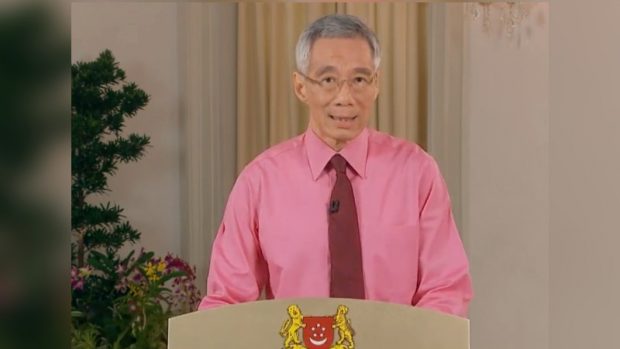Cyber path for Singapore in holding general election on July 10

Prime Minister Lee Hsien Loong calling for polls
By Ivan Lim
Former AJA President, Contributor to AsiaN
SINGAPORE: A unique first for Singapore: a “Cyber-Election’’ with the Republic deciding firmly to go to the polls on July 10 amid the on-going COVID-19 crisis.
Instead of outdoor political mass rallies, the battle for the hearts and minds of 2.65 million voters will take place over TV and Internet platforms. This change is to prevent potential transmission of the Coronavirus through mass gathering of thousands at electrifying campaigns – the staple of past elections.
In a special TV broadcast to the nation on Tuesday, Prime Minister Lee Hsien Loong said he had obtained the President’s consent to prorogue Parliament, setting in motion the election process. A writ of election that followed has set Nomination Day on June 30 for parties to file papers for their candidates to contest the mix of 93 single and group representation constituencies.
On calling the general election now instead of later, the ruling PAP secretary general said: “We do not know what surprises may be in store for us within the next year. But as dangers materialise, we must navigate safely through them and protect Singapore’s security and national interests.”
He touched on several international trouble spots that might impact the Republic. These are the worsening Sino-American squabbles, including over Hong Kong, a flare-up in the ongoing Sino-Indian border conflict and regional tensions between China and some Asean nations over South China Sea islands.
Domestically, the pandemic had decimated jobs, disrupted businesses and pushed the city-state into a recession.
To clinch his argument, the Prime Minister said: “Singaporeans and the government must work closely together, with full trust and confidence in each other. The government must be able respond promptly and decisively to the COVID-19 outbreak and the economic situation and to external developments.”
Political analysts see this as classic PAP strategy of going to the hustings during a crisis to win a strong mandate from the people. In 2001, the party capitalised on the 9/11 Twin Towers terrorist attack to sweep to a thumping electoral victory.
The announcement on the general election, the 13th GE since independence in 1965, came soon after PM Lee and five other ministers made special broadcasts on the government’s $93 billion spending to tackle the COVID-19 impact on Singaporeans’ life and livelihood, a prime-time TV appearance that critics regarded as a stealing a march on opposition parties.
To their credit, however, the dozen PAP opponents, including the Workers’ Party, Singapore Democratic Party, and Progress Singapore Party, were not caught entirely by surprise. They had been using webinars and online chat groups to reach out to voters on their manifestoes and potential election candidates.
Under the new “Covid-19” election rules, they will also get air time on TV to highlight their policies and programmes during the brief short 9-day electioneering period.
Owing to the movement restrictions imposed during the pandemic, however, the opposition parties were not able to forge any pact, say, on avoiding three-corner contests that would split their votes in favour of the monolithic PAP.

























































